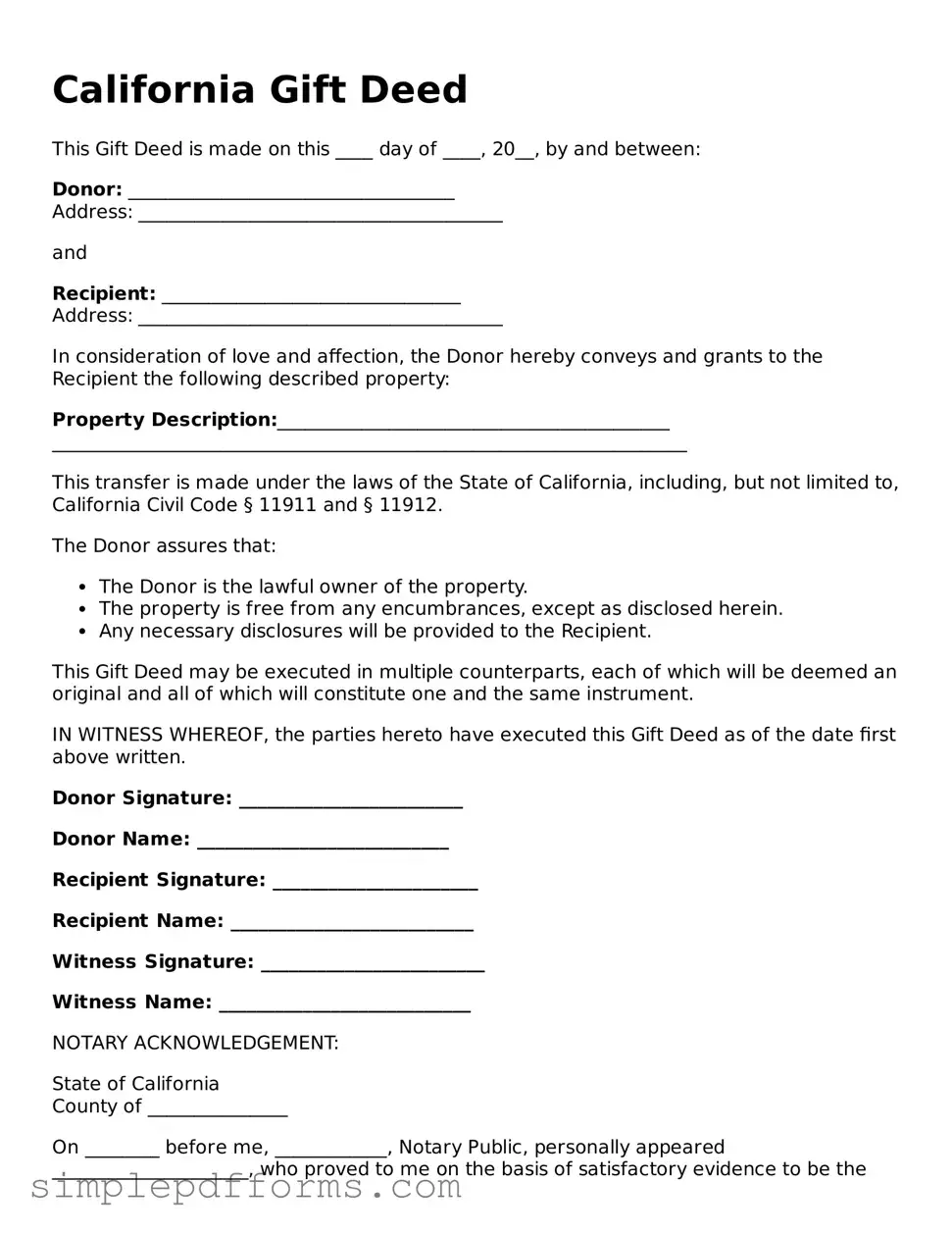Attorney-Verified Gift Deed Document for California State
A California Gift Deed form is a legal document used to transfer property ownership from one person to another without any exchange of money. This form allows the donor to gift real estate to the recipient, often a family member or friend, while providing clear evidence of the transaction. Understanding how this form works can simplify the process of gifting property and ensure that both parties are protected.
Open Gift Deed Editor Now

Attorney-Verified Gift Deed Document for California State
Open Gift Deed Editor Now

Open Gift Deed Editor Now
or
Get Gift Deed PDF Form
Your form is waiting for completion
Complete Gift Deed online in minutes with ease.